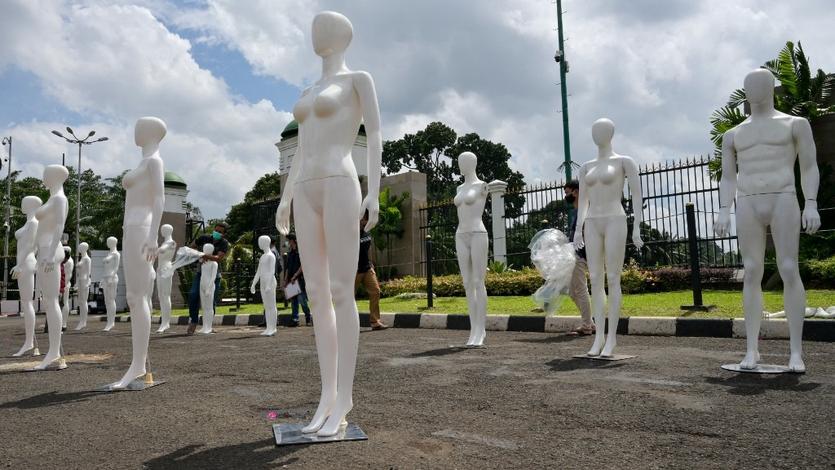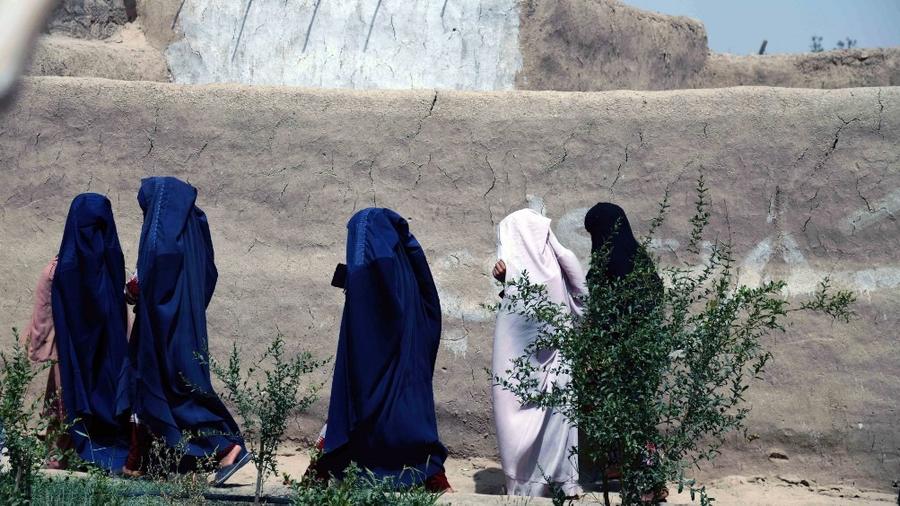 Activists prepare mannequins during a public campaign on violence against women, in front of the parliament building in Jakarta on Dec 8, 2020. (BAY ISMOYO / AFP)
Activists prepare mannequins during a public campaign on violence against women, in front of the parliament building in Jakarta on Dec 8, 2020. (BAY ISMOYO / AFP)
NAIROBI - Violence against women and girls has escalated in low-income countries against a backdrop of climate emergencies, COVID-19-related disruptions, and civil strife, international health campaigners said Monday.
Helen Clark, the board chair of Partnership for Maternal Newborn and Child Health (PMNCH), noted that the scourge of violence against women and girls has become widespread in climate change and conflict hotspots, necessitating a multilateral response
The campaigners said in a statement released in Nairobi, the Kenyan capital, that the quest to eradicate sexual and gender-based violence in the global south has encountered headwinds amid prolonged conflicts, climatic shocks and pandemic disruption to livelihoods.
Helen Clark, the board chair of Partnership for Maternal Newborn and Child Health (PMNCH), noted that the scourge of violence against women and girls has become widespread in climate change and conflict hotspots, necessitating a multilateral response.
Armed conflicts, climate emergencies like droughts, floods and cyclones combined with the pandemic have weakened developing nations' capacity to protect women, girls, children, and the elderly, said Clark, also the former prime minister of New Zealand.
ALSO READ: Pandemic disproportionately affects women, says EU
 Afghan burqa-clad women workers walk inside a shampoo and soap factory in Kandahar on July 30, 2022. (JAVED TANVEER / AFP)
Afghan burqa-clad women workers walk inside a shampoo and soap factory in Kandahar on July 30, 2022. (JAVED TANVEER / AFP)
Statistics from PMNCH indicate that 274 million people required humanitarian assistance and protection in 2022, having borne the brunt of violent conflicts, natural disasters, and pandemic-related stresses.
In addition, nearly one-third of women and girls aged 15 to 49 had experienced a form of physical abuse, with the risk increasing in humanitarian settings like refugee camps, according to PMNCH.
Nearly one-third of women and girls aged 15 to 49 had experienced a form of physical abuse, with the risk increasing in humanitarian settings like refugee camps, according to PMNCH
The United Nations High Commissioner for Human Rights and former president of Chile Michelle Bachelet said that concerted efforts were required to enhance the safety of women and girls in fragile settings.
According to Bachelet, increased funding, enforcement of laws, and robust public awareness would be key to eradicating sexual and gender-based violence in conflict and natural disaster zones.
She added that international collaboration, sharing of best practices, and targeted financing are required to ensure victims of sexual and gender-based violence have access to justice, healthcare, and psychosocial support.
READ MORE: A third of African women hurt by partners, study finds
Spanish Foreign Minister Jose Manuel Albares noted that migrant women, girls, and children have been exposed to physical and emotional abuse, hence the need to avail them of basic services like health, shelter, and sustainable income.


